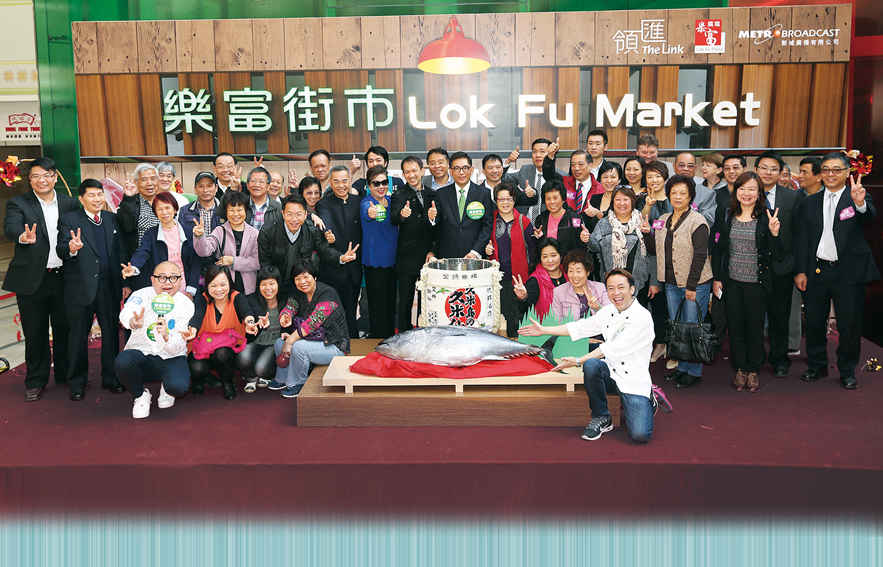
商戶持續發展 締造三贏
Working Together with Tenants to Achieve Shared Success
零售業與市民的生活息息相關,領匯作為眾多零售物業的業主及管理人,一直與商戶並肩而行,為消費者提供更多元化的零售選擇、更合心意的服務。
商戶是我們的最重要夥伴,彼此服務顧客目標一致,各自在本身的專業範疇發揮所長:我們既要豐富顧客購物體驗,亦須打造暢旺的營商環境,吸引優質商戶加盟;另一方面,商戶則要掌握零售脈搏,引入廣受歡迎的貨品及服務招徠顧客。
零售市場競爭激烈,要在瞬息萬變的環境中突圍而出,業主及商戶都必須看透市場趨勢,靈活運用經營模式及策略。業主必先清楚了解商戶的經營模式,包括資本開支、融資方法及回報要求等,方能為他們提供最合適的支援。商戶成本結構,分別由人工、貨品、租金及盈利組成,各自受不同因素影響,成本走勢亦最為商戶關心。
本港勞工市場持續緊張,法定最低工資實施,令致近年人工成本飆升,由於工資一般佔零售商總營運開支約三成,有關成本對商戶造成的壓力實在不容忽視。貨品成本方面,隨著工業近廿年逐步北移,香港出售的貨物都以內地進口為主,而港元近年跟隨美元偏弱,相反人民幣則維持升勢,此消彼長下零售商來貨價格自然不斷上升。香港零售商從生產商直接買貨並不普遍,購貨均經過採購商、出口商、進口商、批發商等多重中間人,加上天災影響供應及價格,其中咖啡豆及麵粉價格的攀升便是最好例子,這些都成為貨價高企的原因。
租金被視作為百物騰貴的禍首,仔細分析商戶成本有助糾正此錯誤觀念。事實上,租金只佔整體營運開支較低百分比,並且因行業而有所差異。一直以來,就不同行業的商戶,領匯致力維持合理的租金對銷售額比例,以保持旗下商戶競爭力。同時,領匯逾九成半的租金收入均來自商戶基本租金,意味大部分商戶不需支付按營業額計算的分成租金。
租金水平保持合理的同時,領匯亦透過一系列措施拓展商戶收入,其中包括市場推廣活動帶動商場人流、營商技巧工作坊、商場提升工程等,為商戶增值。透過收入及成本兩方面,雙管齊下作出支援,商戶業務得以持續發展,達致購物者、商戶及業主三方共贏局面。
王國龍
行政總裁│2014年5月
In Hong Kong, the retail industry has a direct effect on the everyday lives of residents. As owner and manager of retail properties, it is important that The Link works together with tenants to offer the best retail services to our customers.
Tenants are our most important business partners. It is important that both The Link and our tenants play our respective critical roles in serving our customers. As the owner of retail properties, we work to enhance the retail experience by providing a comfortable shopping environment for customers and an efficient operating environment for quality tenants. At the same time, tenants should provide the best products and services for the benefit of shoppers.
In the highly competitive retail market, both The Link and our tenants should grasp the latest market trends as well as the ever-changing business models and strategies. With regards to tenants' business models, it is important that we understand their capital expenditure requirements, funding models and required rates of return so we can find the most appropriate way to support their businesses. For example, tenants' operating cost structures are usually divided into four main categories: labour costs, product costs, rent and profit margins.
Labour shortages have increased following the implementation of the minimum wage law, which has led to rising labour costs. Generally speaking, labour costs account for around one-third of total operating costs. Regarding product costs, as most products in Hong Kong are imported from Mainland China, the weakening value of the Hong Kong dollar in relation to the Chinese yuan has led to increases in the price of imported products, which has resulted in higher overall operating costs. In addition, other factors also lead to increases in product costs, such as weather conditions and the fact that most retailers in Hong Kong do not import the products directly from the manufacturers but through various parties, including purchasers, exporters, importers and wholesalers.
While many Hong Kong residents understandably attribute the city's high cost of living to increasing rent levels, rent is actually only a small component of total operation costs, which vary between trades. The Link has long taken tenants' affordability into consideration for rental adjustments to maintain our competitiveness. Also, over 95% of The Link's rental income comes from tenants' base rents, where tenants do not need to share the upside of their business as turnover rents.
Last but not least, The Link also supports our tenants through various measures, including organising different kinds of marketing activities and tenant workshops, and rejuvenating shopping environments in our facilities through asset enhancement works. These not only aim to provide a more competitive business environment for our tenants, but also help equip them with the necessary skills to ensure their sustained business success.
George Hongchoy
Chief Executive Officer │ May 2014
